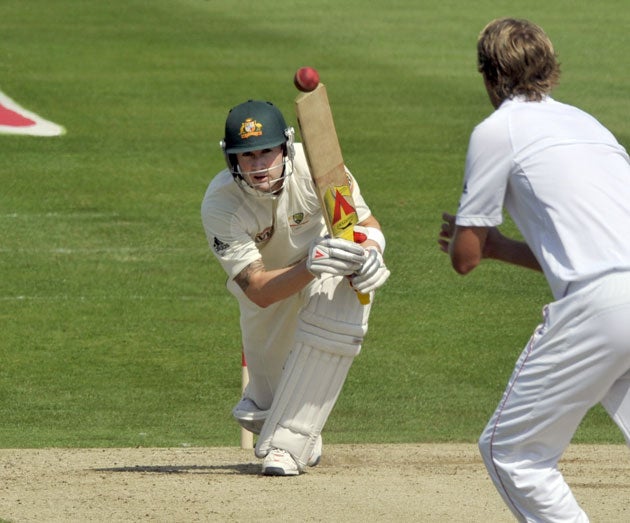Air of despair turns to oxygen of hope
A couple of days in Leeds have dramatically changed the Australians' outlook, writes Peter Roebuck at Headingley

Although impressed by their team's rearguard action at Edgbaston, and relieved not to have gone 2-0 behind, Australians had been in despair about their prospects of hanging on to the Ashes. Notions of winning the series and retaining top place in the official rankings had long since been abandoned in all except the most optimistic quarters. Even their captain, ordinarily amongst the most sanguine of leaders, had admitted that he'd take a drawn series and walk away with a smile. Everyone sensed that Headingley offered the last chance of turning things around. A high scoring draw was expected at The Oval. It seemed a forlorn hope. The mood was dark. As one pal said: "It's not the losing. But did it have to be the Poms?"
Supporters had been following events with indignation and alarm. From the Derwent River to Roebuck Bay, locals were baffled by the omission of Stuart Clark, a highly respected operator. Whereas the winter games vary from state to state, cricket unites the country and the national team's fortunes are closely followed.
No one knew how the heck Australia were going to take 20 wickets. Mitchell Johnson was in such a bad state that people were talking about his mother. Peter Siddle could not blow out a candle. And these were the team's cracks. It did not bode well but it could have been worse. Australia might have lost in Birmingham.
Two retained wickets have dramatically affected the course of the series – England's 10th in Cardiff and Australia's fifth in Edgbaston. In both cases the denied fell back.
Everything changed on that chaotic first morning in Leeds. Beforehand it was hard to detect any alteration in the teams' mien. Certainly Ricky Ponting was hanging tough but that is his nature.
Although slightly bemused by the local obsession with the Barmy Army, he spoke quietly and with conviction at his press conference, indicating that his side intended to come out fighting. His counterpart found himself answering endless enquiries about Andrew Flintoff, another obsession. In hindsight, though the Australians had already changed.
Johnson's face-to-face aggression in Birmingham pointed towards a rejection of inhibition. Dropping Nathan Hauritz and summoning Clark confirmed that the think tank understood the urgency of the situation and was willing to correct its mistakes.
Brad Haddin's determination to play was also inspiring. Broken fingers take at least three weeks to mend yet he took his place and refused to show any sign of discomfort.
England had changed as well, and not to their advantage. Flintoff's loss was crucial or else what has all the fuss been about? Next came the call-up of a notably South African batsman, an outsider, a nomination calculated to upset the atmosphere. To make matters worse, Matt Prior suffered a back spasm before the coin had been tossed. England were in a pickle, and its batsmen had little time to prepare properly, and it showed.
For two days Andrew Strauss's team have played loose cricket, giving wickets and runs away, allowing the Australians to ride roughshod over them. Inevitably fortune changed its affiliation – the decisions have started to go Australia's way.
Now the mood is entirely different. Suddenly the Australians have a sprint in their step, their supporters think they can repel the English onslaught.
Two moments from Headingley capture the turnaround. England's first wicket fell to a spectacular slip catch by Marcus North, a fellow widely regarded as a safe but unfussy poucher. If anything Clark's innings was even more unlikely. Amongst the most sensible of bowlers, the lanky paceman is amongst the most madcap of batsmen, nor is competence his strong point. Yet he produced three rapturous strokes that sent the ball sailing over the ropes.
Assuming nothing untoward happens, Australia will go to The Oval needing only to draw to hold on to the Ashes, and with momentum on their side. In 2005 – a series that does occasionally get mentioned in this neck of the woods, England were in the same position. So near and yet so far.
Five days is a long time though, and batsmen cannot simply walk to the crease and try to block. In any case that is not the modern way.
Moreover, Australian batsmanship has always recognised the importance of taking and keeping the initiative. A turning pitch might also cause complications but the Australians are starting to look, well, Australian again. Ponting and colleagues mean to complete their mission.
Subscribe to Independent Premium to bookmark this article
Want to bookmark your favourite articles and stories to read or reference later? Start your Independent Premium subscription today.

Join our commenting forum
Join thought-provoking conversations, follow other Independent readers and see their replies